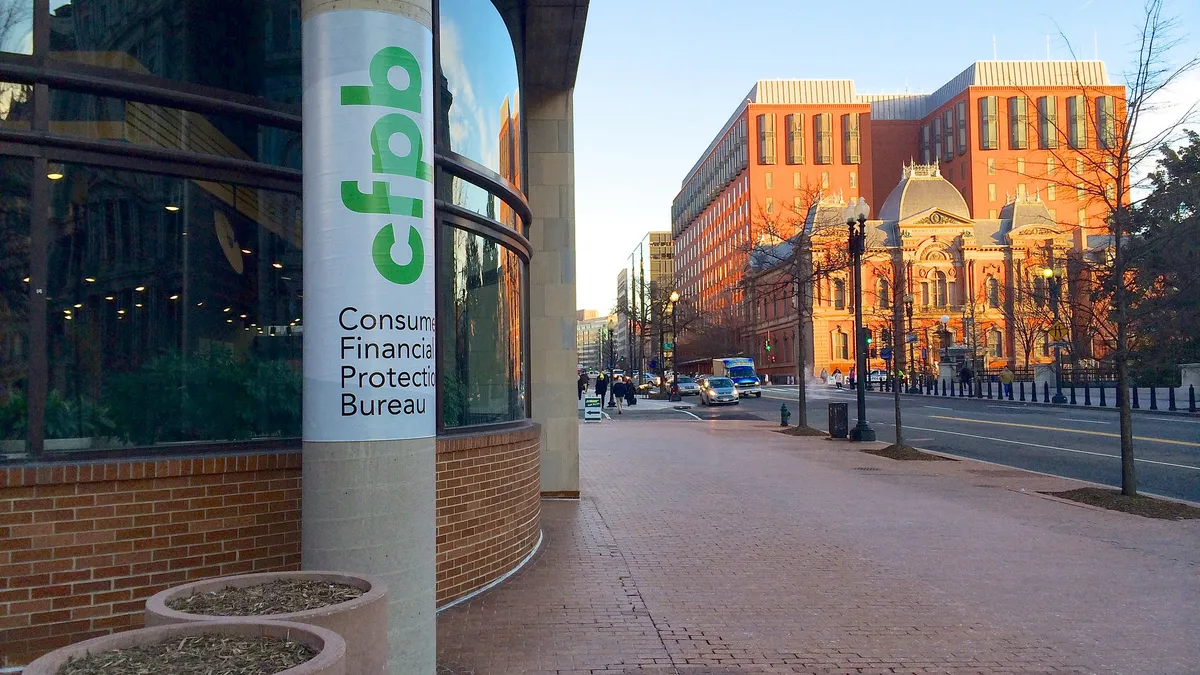Banks would be required to report more data on small businesses applying for loans under a notice of proposed rulemaking the Consumer Financial Protection Bureau (CFPB) issued last week.
Under the proposal — which would cover data pertaining to term loans, lines of credit, credit cards, leases and merchant cash advances — lenders originating 25 or more small-business loans must report data on credit applicants, including women-owned and nonwhite-owned businesses.
Alongside the proposed rule, the CFPB released a list of proposed data points to collect — 23, in all — including the race, ethnicity and sex of borrowers, amount sought, amount approved, reasons for denial, and gross annual revenue.
The CFPB also announced the launch of a web portal meant to let entrepreneurs share their experiences about applying for credit, which the bureau said would give transparency to business owners' challenges.
"Small businesses are the primary job creators and wealth builders in communities across the country," CFPB Acting Director Dave Uejio said in a press release. "Yet too often, small business development is starved for want of access to responsible, fairly priced credit."
The CFPB is couching the proposed rule as part of a congressional mandate that originates in the Dodd-Frank Act's Section 1071, which is geared toward the enforcement of fair lending laws. As such, the data collected has the potential to open banks to scrutiny over the role of race and gender in lending and perhaps form the basis of disparate impact claims.
Public comment on the proposed rule is open for 90 days. However, some banking trade group are suggesting the agency limit the scope of the data.
"The complexities of collecting and reporting credit application data on women-owned, minority-owned, and small businesses under Section 1071 cannot be overstated," Consumer Bankers Association (CBA) President Richard Hunt said last week in a statement, adding that the rule, if adopted, would force banks and vendors to overhaul their processes to meet data collection and reporting requirements. "Ultimately, a well-balanced final rule — with a phased approach to implementation and a thoughtfully tailored set of data points requiring collection — will limit the Bureau’s risk of creating unintentional impediments to small business credit access and empower banks."
While that group took issue with the amount of data the CFPB proposes collecting, the Independent Community Bankers Association (ICBA) aimed its complaint at the number of banks that would have to adhere to the proposed rule. (The Trump administration, American Banker reported, said last year it had mulled exempting lenders with less than $100 million in assets.)
"The bureau’s proposal ... would ensnare even the smallest community banks in rural and other underserved areas, where barriers to credit should be reduced," ICBA CEO Rebeca Romero Rainey said in a statement. "Imposing any new data collection and reporting requirements on community banks would harm small-business lending at the very time local businesses are working to recover from the COVID-19 pandemic."
She said the CFPB should reconsider the impact the proposal would have on small-business lending.
For its part, the bureau, in the text of the proposed rule, said it "does not believe that the request made by several trade association stakeholders to take a more limited approach to scope — including the various limitations on the coverage of certain types of financial institutions and products — would be consistent with the statutory purposes of [S]ection 1071."
The bureau did, however, lay out some parameters it is hoping to define during the comment period — specifically, how to define a small business, what activity threshold to set when requiring data collection and reports, and how to balance public disclosure with concerns about the privacy of borrowers.












